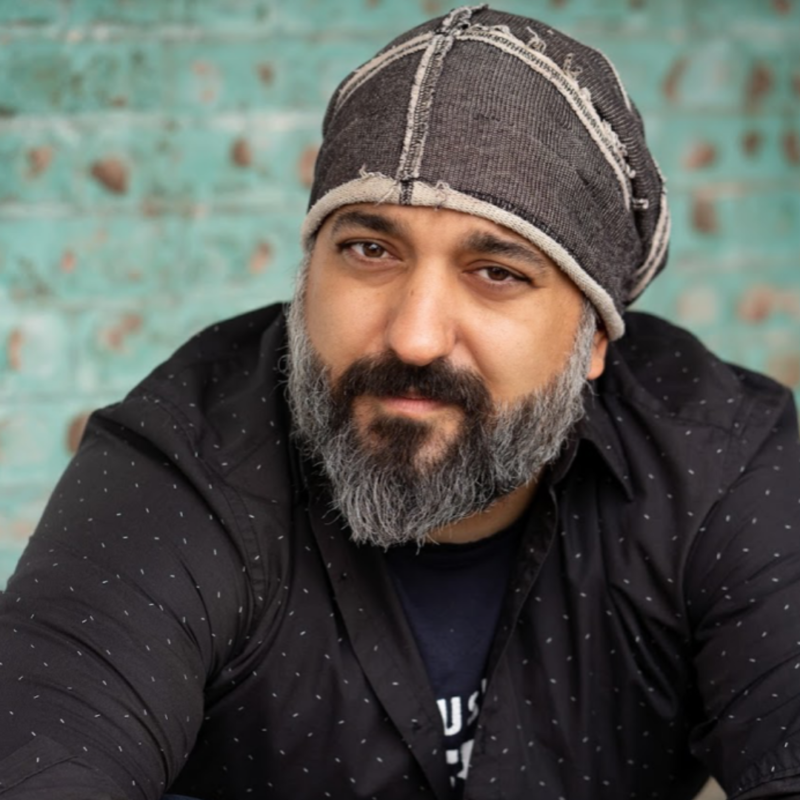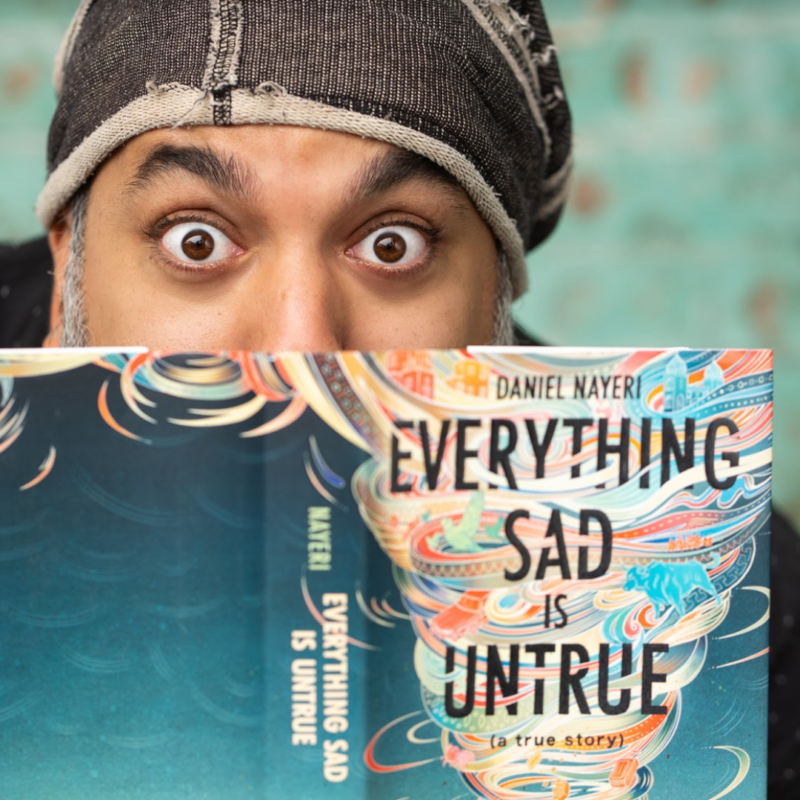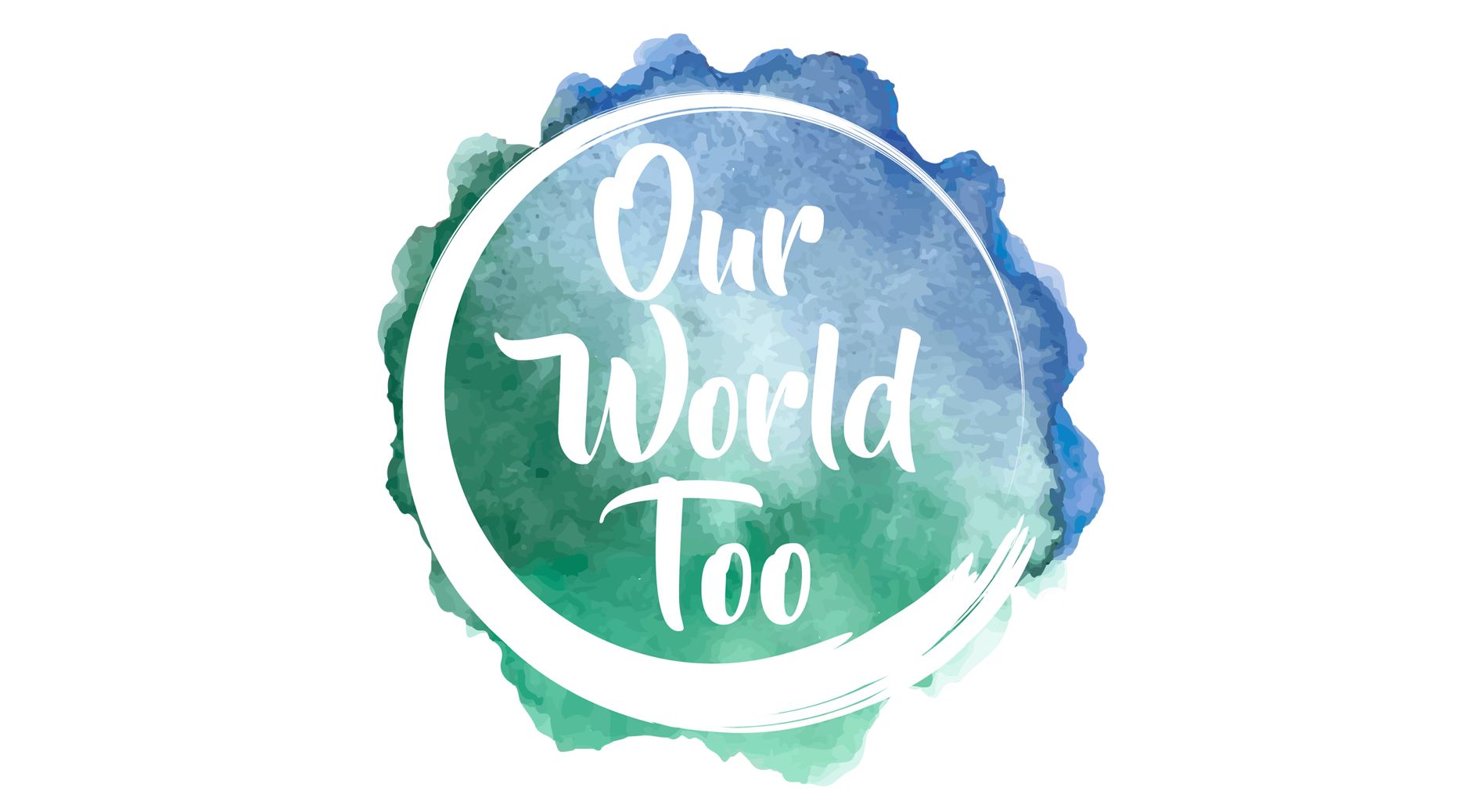Refugees don’t take, they make a country richer because of their contributions
Edited excerpt from the transcript of a phone call with Daniel Nayeri
For a 6-year-old, it had all the hallmarks of an adventure even though the bad news kept piling up. In Dubai, I saw a vending machine for the first time and I vividly remember it because there was this machine, and it gives you soda. My mom put in a coin and got me orange soda. So, while we were standing there at 11 PM in a country where we had no home, I was experiencing orange soda for the first time in my life and kind of enjoying it.
This was how I experienced being a refugee, through the eyes of a child. I was born in Iran and my mother converted to Christianity and joined a secret underground church. She ended up running afoul of the Iranian secret police and was interrogated by them. She knew our lives were under threat and that we needed to leave the country quickly. I remember that day, when my father brought us home. My mother was frantic, and she was packing with tears in her eyes. We had to leave, my mother took my sister and myself and we became refugees for a period of time. We ended up in Dubai. At that point, we knew there was no going back but I hadn’t internalised it.

It would be a lie to say there is a constant feeling of dread, instead there is a very real spike pattern, the first time I ate fried chicken or oh my gosh this place has parks to oh, my father won’t be coming. Sometimes we spent two days sitting at the United Nations to get through the bureaucracy of the paperwork and the joy is suddenly seeped from the experience. I think there is the antipode of adventure and escape that constantly crush into each other.
We found this Australian couple who ran a clinic for marginalized patients in the UAE, my mother was a doctor, so she helped out and we lived in a small home behind the clinic. I ended up enrolling in 1st grade, but I only attended for a couple of months because it was very late into our 10 months stay in the UAE. I made friends with some boys who just ran around, soccer was the great equaliser. Soccer is greatly underappreciated in the fact that you can play it just by making noises at each other, both in the UAE and later Italy I was greatly saved by the fact I could make random noises and the ball would be kicked my way. If I do well, they like me. If I do poorly, they don’t like me, just the same as everyone else.
It’s untrue to pretend refugee children aren’t also children…Yes, they have faced hardships, but they also have humanity, and humanity can sit in some pretty dark places and laugh.
It’s untrue to pretend refugee children aren’t also children. They find ways to play with a soccer ball, that doesn’t change the fact they aren’t living that experience at all times but to pretend there is no found or manufactured joy during these times is a dehumanising aspect. Yes, they have faced hardships, but they also have humanity, and humanity can sit in some pretty dark places and laugh.
After 10 months in the UAE, we ended up in a refugee camp in Italy. We had one small room and it had no furniture aside from a bed, but it had a bathroom and they fed us, so in that sense it was quite accommodating. This wasn’t somewhere people permanently settled so we knew we were in a transitional period. The conversations in the camp were very interesting and it was like a game of telephone. One person would speak and then someone who understood would translate and then someone else would speak until everyone sort of understood. The discussions were always around how long you’ve been here and what’re your prospects for getting out. There was this explicit avoidance of discussion about how you got there. The conversation was always about what you would do when you get somewhere else.
In camps, there’s this waiting sickness, like the now is going to happen in the future and everything is in that conditional future. My mom diagnosed this quickly and saw that many people were hopeless while waiting for decisions, so she took us to see Italy.
In camps, there’s this waiting sickness, like the now is going to happen in the future and everything is in that conditional future. My mom diagnosed this quickly and saw that many people were hopeless while waiting for decisions, so she took us to see Italy. We couldn’t afford to eat anywhere so we took homemade sandwiches, and we couldn’t afford to go into the places, but the Roman Forum is literally on the side of the street. So, we return again to this spike. I got to see Rome and Colosseum, where the gladiators fought, which made that moment and the waiting really riveting.
As a refugee everything you’re doing is fundamentally a request to go somewhere else, so it’s hard to value that moment because you don’t have a lot.
My mother had all kinds of tricks, we took overnight trains so we wouldn’t have to pay for hotels. I got to see Florence and other places because they were part of this weird adventure but then I would also spend days on a chair at the UN, counting the rivets waiting for decisions. That was my mother’s gift to us, we didn’t wait to have our childhoods when we got somewhere else. As a refugee everything you’re doing is fundamentally a request to go somewhere else, so it’s hard to value that moment because you don’t have a lot.
My mom also found a couple home-schooling their children and teaching the US curriculum. Since it was likely that we were heading to the US she thought it would be best for us to get started. The kids were our age and their curriculum consisted of 66 books which were broken down into 6 subjects. They were much further along than we were, so my mom asked for their completed books and went out to buy these giant erasers and some pencils. She erased all the books so we wouldn’t be able to see what the other kids had written. Her hands were calloused from how much she erased.
Finally, we were recognised as refugees but to come to the US, a family had to co-sign to sponsor us and it’s an incredible act of trust and consideration. We ended up staying with Jim and Jean for around 2 months.
In 1989, in the US, I discovered peanut butter for the first time. I remember the first time I went to Toys R Us; it was unfathomable that it was stacked with toys, I was over the moon. There was also this sense of finally having arrived so we could plan the future. My sister and I started asking questions about the best colleges and where to work. There was no skill cap to what we could achieve and that was like rocket fuel for my sister and me. Most things were free like the soccer team or public school, so we had plenty to do. We tried to do the most so we wouldn’t remain poor. We knew we could change; it was very easy to see from our perspective. My mom placed a lot of value in education, and it was a distinct advantage for us.
We didn’t speak English well at first and it was obvious we weren’t from the US, so we did get questions like what’re you doing here. For the next few years, we learned the culture, language and how to speak without an accent, so it got to a point where conversations began to be led with that aspect less. Around the same time, I made a friend who I’m still close to, he moved from Kansas to Oklahoma and apparently that was enough to make him an outsider too. We connected over that and our love for video games.

The US is a very lucky place, in one generation my sister and I were able to go to great public schools, go to university on scholarships and land careers. I graduated in Literature, Writing and Religious Studies from university, now I publish children’s books and write novels and screenplays.
I think back to when we first landed on these shores with quite literally nothing in our pockets, well actually I can tell you exactly what was in my pockets. Three micromachine car toys and two peach pits which might sound particularly dramatic, but for a little boy they are perfect to jump the cars over. Landing here 30 years ago to now running a company, it’s kind of dizzying.
I think back to when we first landed on these shores with quite literally nothing in our pockets, well actually I can tell you exactly what was in my pockets. Three micromachine car toys and two peach pits which might sound particularly dramatic, but for a little boy they are perfect to jump the cars over. Landing here 30 years ago to now running a company, it’s kind of dizzying.
My memories from Iran are stamped because my father chose to stay. He visited 2 or 3 times in the last 30 years but those childhood memories of him are set in Iran. I don’t know anything about neurology, but I wonder if that was an anchor that allowed me to keep hold of those memories. Iran has a difficult relationship with the West and we obviously had to leave but I would like to visit because it’s my home country.
My view is that refugees don’t take, they make a country bigger and richer because of their contributions, but this sudden scarcity model has to change.
I believe refugees are people whose need for belonging is made manifest slightly more physically than everyone else’s. From the US perspective I hope it remembers the promises it was living up to in the 1980s. The US is big, strong and smart enough to accept more refugees. Often within a generation refugees are able to achieve such incredible growth. It’s not an asymmetrical obligation, people have to fulfil their obligations to welcome the next groups so that other people can do what Jim and Jean did for us in 1980s. My view is that refugees don’t take, they make a country bigger and richer because of their contributions, but this sudden scarcity model has to change.
Refugees don’t take things for granted; they learn to make the best of what they have. They know how to go from nothing and work their way up. Chobani, a US based yoghurt company, is super popular and it was created by a Kurdish refugee. How can you not love that as a story? He exhibited the best of the culture he came from and the best of the culture he came to. I want more stories like that, and we don’t have enough of it yet. We need to change the perception because right now we’re afraid of the scarcity attributed towards refugees and how they are portrayed as poor or homeless. People don’t understand, and they allow it to become a moral judgment. That is a very simplistic understanding and refugees have just as much of a desire to create a future for their children.
